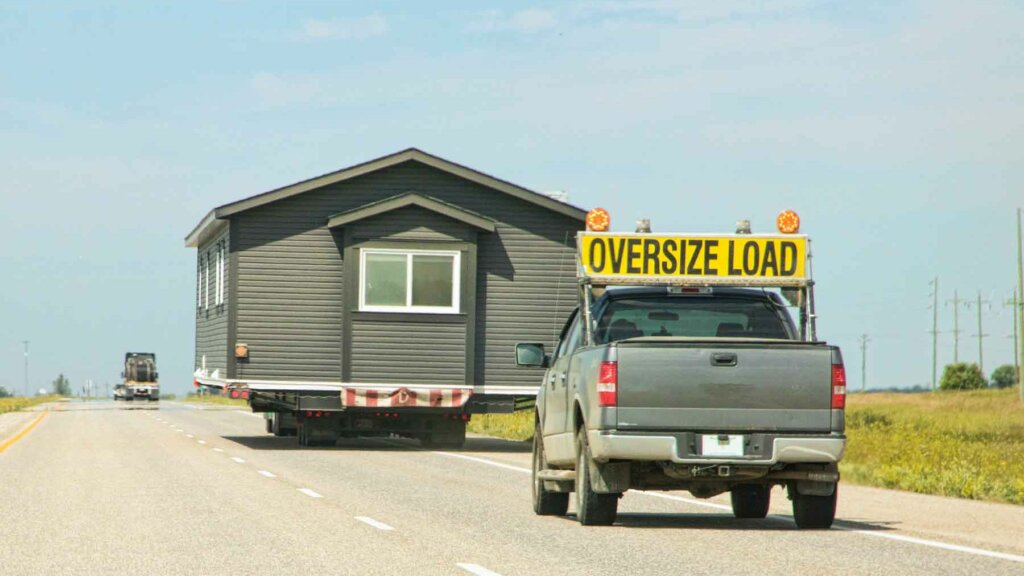Do You Need A Mobile Home Moved Off Of Your Land In South Carolina?

**Disclaimer: We Buy SC Mobile Homes does NOT move mobile homes. We buy and sell mobile homes but do NOT move them.**
It’s estimated that 5.6% of all Americans (18 million people) live in mobile homes, making them the “single largest source of unsubsidized affordable housing” in the country, according to a 2017 report published in the American Sociological Review. With so many individuals residing in mobile homes, the topic of relocation is one that is starting to come up more often. For that reason, it’s important to know not just the specifics of moving mobile homes but the laws on moving a mobile home that can affect your ability to relocate to certain areas.
There are a lot of benefits to living in a mobile home, including reduced purchase and maintenance costs and environmental friendliness. Thanks to the introduction of certain HUD codes in the late 1970s, they’re also safer than ever, with regulations covering everything from the mobile home’s heating and air conditioning systems to structural design and fire safety.
There’s also another big reason that people invest in a mobile home: convenience. Unlike with a traditional detached single family home, mobile homes can often be hitched on the back of a truck and relocated, meaning that just because you have to or want to move doesn’t mean that you have to sell your house. That’s a major benefit, but it’s also, unfortunately, not always so simple.
The laws on moving a mobile home dictate when, how, and if a mobile property can be moved. So how do you know if you’ll be able to relocate your property? Here are four laws on moving a mobile home that you’ll need to know about before you pack up.
Law #1: You’ll Need to Get a Moving Permit
You can’t just pick up and leave with your mobile home when you feel like it. While the exact process of obtaining a moving permit for a mobile home depends on the state and county in which you are currently living, you will almost certainly be required to prove a few key things:
- A certificate from the county treasurer stating that there are no unpaid and/or overdue taxes on the property
- A certificate of title for the property, or a copy of the certificate of title. Some counties will also accept a copy of the application for a certificate of title that you have submitted to your state’s department of motor vehicles
As you would any time you deal with your local municipal government, be sure to give yourself plenty of time to get your permit in order before your move—you don’t want slow paperwork or approvals to mess up your moving day.
Law #2: You’ll Need Professional Help
There’s no such thing as a DIY move when you’re relocating with a mobile home in tow. That’s because the laws on moving a mobile home require that you work with a licensed, bonded, and insured professional moving company to move the actual structure of your home. Use our free online list of movers to search reputable moving companies in your area, and then reach out to them directly to get a quote and see if they have the experience, equipment, and trucks necessary to move your mobile home.
Not all moving companies are up to the task, so similar to getting your permit, give yourself plenty of time to do your research here. Not only will that help ensure that you get a good company to help you out, but you’ll also be able to shop around for quotes so that you know you’re getting the best deal possible on your mobile home move.
Law #3: You’ll Need Your Home To Be Up to Code
Those HUD codes we mentioned before aren’t just suggestions for mobile homes—they’re legal requirements for placing any mobile home on the map, including ones that were built before the codes went into place.
So what does this mean for your move? If your mobile home was built prior to when the HUD codes were enacted in 1976, then you’re probably not going to be allowed to move it. And most municipalities bolster this law with their own age limits, as well as strict local requirements around modern day building standards for the home and its internal systems. With those standards in place, a mobile home built in the ‘70s, ‘80s, or even ‘90s might not get the pass.
Law #4: You’ll Need to Check the Legal Requirements of Where You’re Moving
In addition to considering the laws of the locality where you are moving your mobile home from, you’ll also need to consider those of the locality where you’re moving your mobile home to. The town where you’re relocating to may have stricter laws regarding building standards and property age than the town you’re leaving, and will almost certainly have notable zoning restrictions that you’ll have to be sure to abide by.
If your mobile home is more than 10 or 15 years old, expect to go through a bit of legwork providing accurate proof of the integrity of its structure and systems. Modern day building standards are in place for a reason, and there’s no getting around these laws if your property isn’t meeting the bar.
Where to Start
Don’t let the laws on moving a mobile home deter you from starting the process. Many people successfully move their mobile homes every year, and so long as you give yourself enough time, it doesn’t have to be a stressful process.
As for what to do first, follow these steps for making sure you dot your i’s and cross your t’s when it comes to the laws on moving a mobile home.
